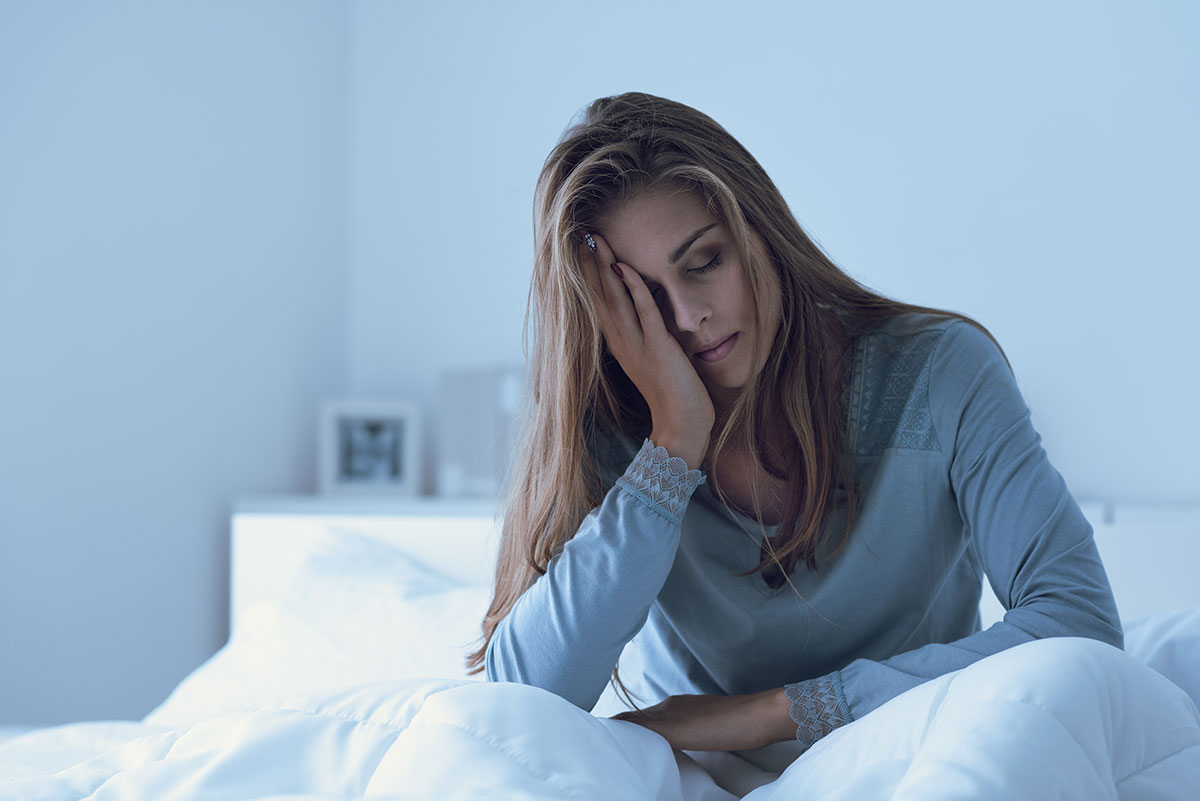
Waking Up Tired: You go to bed at a reasonable hour every night. You get your required 8 hours or so of sleep. So why are you waking up tired every day?
Waking up tired is, to put it bluntly, a real downer. After all, how you wake – your mood, how you physically feel, etc – sets the tone for the rest of the day. When it happens day after day, it has wider impacts on your overall wellbeing and, ultimately, your health.
Some people joyfully rise with the sun, feeling happy and energetic. Others struggle to wake up or to even get out of bed, and don’t feel like they can function at least until after their first cup of coffee. Many even remain sluggish well into the day.
Is this just a quirk of biology (i.e. Early Birds versus Night Owls)? Or is there more to it?
Why Do I Wake Up Feeling So Tired?
It’s not unusual for almost all of us to occasionally wake up in the morning feeling flat or groggy – and the majority will bounce back to feeling their best once they’re up and about. Waking up tired regularly is another matter – especially if feelings of fatigue last throughout the day.
There are several underlying reasons why this may occur.
Sleep Inertia
The most likely cause of waking tired is sleep inertia. This is the natural groggy state that occurs during the transition between being asleep and awake. Scientists believe it may be caused by the chemical adenosine, which builds in the brain during waking hours and declines during sleep.
Taking anywhere between fifteen minutes and two hours to dissipate, sleep inertia is quite normal. Your chronotype has an impact here too – Night Owls seem to take longer to recover from sleep inertia than do Early Birds.
Symptoms of sleep inertia include sleepiness, brain fog, and lower cognition. It is more likely if you don’t get enough sleep, wake earlier than usual, or wake abruptly from a deep sleep. (This is why you may wake from a daytime nap feeling worse than you felt before you went to sleep). It tends to feel worse if you do not get enough regular exercise, are out of sync with your circadian rhythm, or have a sleep debt (i.e. have not achieved the required amount of sleep).
A worse form of sleep inertia is “sleep drunkenness”. Lasting up to four hours, it is characterised by slowness, lack of coordination, and even confusion.
Circadian Rhythm Out of Sync
Your body’s internal clock (circadian rhythm) drives your sleep-wake cycle as well as hormone production, heart rate, temperature, and much more. In sync, you’ll experience sleepiness at bedtime and alertness when it’s time to get up. Out of sync, you’ll feel groggy and flat during the day and likely struggle to stay asleep at night. You’ll also trigger disordered cortisol (stress hormone) release.
Being out of sync is more likely if you work shifts, travel across time zones, have social jet lag (irregular sleep-wake times), or need to function against your natural chronotype. Waking at the “wrong” point in your sleep cycle will leave you feeling drowsy at best. Simply sleeping in at the weekend or going to bed later than usual is enough to cause an imbalance.
Sleep Debt
We all need a specific amount of sleep. While it is individual to each of us, almost all adults require between seven and nine hours of restful sleep per night. If you don’t meet your needs you will accrue a sleep debt. This can also exacerbate sleep inertia – leaving you feeling sleepy all day.
Sleep debt can impact how you feel for up to two weeks – so even if you slept well and got enough sleep over the last couple of nights, you may still feel tired thanks to that party or late-night Netflix binge from a week or two ago.
Poor Sleep Environment
Optimal sleep requires that your bedroom environment supports it. Your sleep can be compromised by many things: an old or inappropriate mattress for your needs; allergies; a snoring partner (more on this below); a bedroom that is too hot or too cold, too light, too noisy, or too stuffy.
Exposure to Blue Light
Blue wavelength light (e.g. from electronic devices and energy-efficient lighting) is great for boosting mood and alertness during the day. At nighttime, however, it suppresses melatonin (sleep hormone) release and is literally an enemy of sleep.
Furthermore, using dynamic screens (e.g., playing games) has an enormous impact on dopamine – and this has very detrimental effects on sleep and mood.
Caffeine/Alcohol Consumption
Caffeine (coffee, black tea, cola, chocolate) makes it more difficult to fall asleep and stay asleep. Why else do we crave it when we feel sleepy? It also increases the amount and frequency at which you need to urinate.
Alcohol, on the other hand, while it is a depressant, does not promote good sleep – you may initially fall asleep quickly, but you won’t stay asleep. You’ll also feel less than stellar the next morning.
Nighttime Urinary Frequency
Needing to get up to go to the toilet more than once throughout the night is very disruptive to sleep. Frequent nighttime urination (two or more times per night) is called nocturia and it can have several causes.
Disordered Sleep and Medical Issues
Insomnia, night terrors, sleep paralysis, sleepwalking, restless leg syndrome, and nightmares or extremely vivid dreaming can be addressed. Also, issues including bruxism, sleep apnoea, snoring, pain, and others can impinge upon your sleep – see your doctor to check these and get solutions.
How to Wake Up Refreshed – and What to Avoid
- Maximise your exposure to morning light – this triggers the hormones that naturally wake you up.
- When you get up in the morning, take a quick shower (but not too hot). You may also choose to do some exercise first thing – even just stretching will help.
- Eat a healthy but not too heavy breakfast.
- Have a cup of coffee or tea to give you a caffeine hit if you need it.
- Aim to go to bed at the same time every night and wake at the same time each morning – even on weekends!
- Switch off backlit devices 1-2 hours before bedtime. If you use an e-reader, choose one that is not backlit (e.g. Kindle Paperwhite or similar).
- Maintain a cool, dark, quiet, and comfortable sleeping environment.
- Replace your mattress at least every ten years.
- Treat allergies and keep your bedroom free of dust and other allergens (including pets) if you are sensitive.
- Do not get into the habit of sleeping with music or other background noise. (A sound machine is an exception if you need it). Sleep with earplugs if necessary.
- Moderate alcohol consumption and don’t drink close to bedtime.
- Don’t consume caffeine after 4 pm.
- Moderate how much liquid you consume within a couple of hours of bed. If water retention is an issue for you, consider wearing compression socks during the day.
- Quit smoking/vaping.
- If you or your partner snores, get help to address this. A great place to start (and for most people, resolve the issue) is to use an anti-snoring device like SnoreMD.
- See your doctor to treat issues that disrupt your sleep, including sleep apnoea, urinary frequency/prostate issues, menopausal symptoms, gastroesophageal reflux, severe allergies or sinus issues, arthritis, other pain issues, etc.
When To Get Help for Waking Up Tired
Chronic tiredness and feelings of fatigue, exhaustion, and grogginess can indicate numerous conditions and need to be checked by your doctor. While suboptimal sleep is likely the culprit, you’ll need to rule out any underlying medical issues as the possible cause of how you’re feeling and, if present, commence treatment or other management promptly. Your doctor can also either advise you about how to effectively improve your sleep or refer you to a sleep specialist or another appropriate specialist to help you and address your specific needs.
Sleep Better & Wake Rested with SnoreMD
Snoring is a major contributor to poor-quality sleep – it causes the snorer to stir many times throughout the night and has an array of health and wellbeing consequences. By preventing or minimising snoring, you can take a big step towards more restful sleep and feeling better in the morning.
SnoreMD is an affordable, highly effective, and easy-to-use anti-snoring device. The Australian brand of a mandibular advancement device that is used by people all over the world, it is worn in the mouth while you sleep. It’s unique adjustable feature gently moves the lower jaw slightly forward; this opens the airways to help prevent the cause of most snoring.


